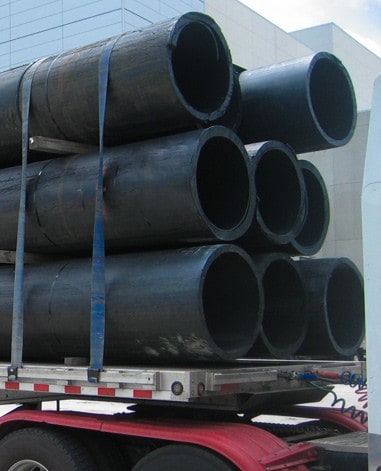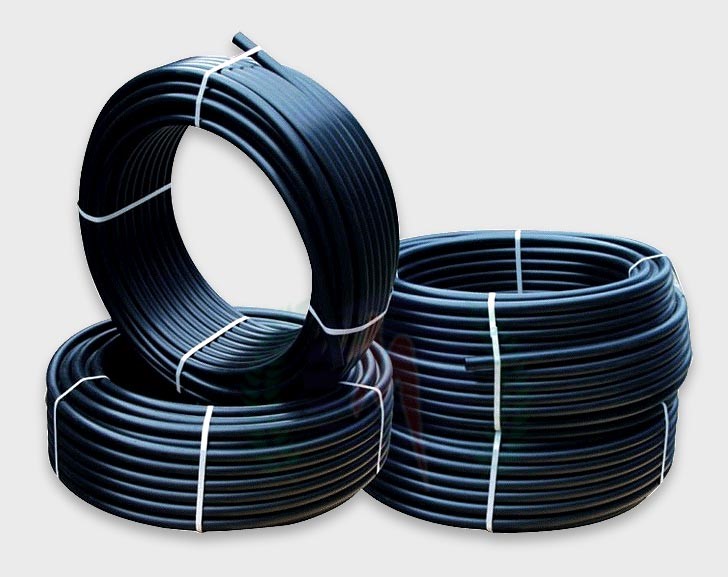The Comprehensive Resource to Pipe Manufacturing Midland TX for Construction
A Comprehensive Guide to the Various Uses HDPE Pipe in Construction and Market
HDPE pipes have become a crucial part in contemporary building and industrial applications. Their distinct buildings, such as resistance to deterioration and light-weight design, make them suitable for a large range of uses. From water system systems to farming irrigation, HDPE pipelines use options that enhance efficiency and sustainability. Comprehending their diverse applications is important for specialists wanting to maximize facilities. What specific advantages do these pipelines bring to each market?
Water and Distribution Equipments
Water system and circulation systems are essential components of metropolitan infrastructure, typically counting on high-density polyethylene (HDPE) pipelines for their durability and performance. These systems transportation potable water from treatment centers to consumers, ensuring ease of access and security. HDPE pipes are favored for their resistance to rust, chemicals, and severe temperature levels, which improves their long life and reduces maintenance prices. In addition, their lightweight nature permits much easier installment and transportation, making them perfect for numerous city and rural applications.
The flexibility of HDPE pipes enables them to be installed in tight rooms and around challenges, reducing the requirement for comprehensive excavation (hdpe pipe in stock Midland TX). Their smooth interior surface area reduces rubbing losses, enhancing water flow rates. As cities remain to expand, the demand for dependable supply of water systems increases, positioning HDPE pipelines as a lasting option for contemporary facilities tasks. Their proven track record makes them a favored selection among designers and city coordinators alike
Wastewater Management and Treatment
Reliable wastewater monitoring and treatment are crucial for maintaining public health and environmental quality. HDPE pipelines play an essential duty in this process as a result of their longevity, resistance to rust, and ability to withstand harsh chemicals. These pipelines are commonly made use of in numerous applications, including sewage systems, stormwater drain, and wastewater therapy facilities. Their lightweight nature assists in simpler installment and transportation, reducing labor costs and time.
Furthermore, HDPE pipelines have a smooth indoor surface that reduces friction loss, promoting efficient circulation rates. They are likewise much less prone to leakages and failures compared to conventional materials, ensuring that impurities are had effectively. Additionally, their flexibility permits flexibility in different soil conditions, making them ideal for varied environmental settings. As markets significantly prioritize lasting methods, the use of HDPE pipes in wastewater monitoring systems aligns with objectives for lowering ecological impact and improving resource recuperation.
Agricultural Watering Solutions
In farming setups, reliable irrigation solutions are important for enhancing plant yields and managing water sources. HDPE (High-Density Polyethylene) pipelines play an essential role visit homepage in modern-day irrigation systems because of their durability, adaptability, and resistance to corrosion. Their my site capacity to withstand high stress makes them optimal for both surface area and subsurface watering applications, ensuring uniform water circulation across areas.
Farmers can utilize HDPE pipelines in drip irrigation systems, which supply water straight to plant origins, decreasing wastage and advertising healthy growth. Additionally, these pipes are lightweight and simple to mount, minimizing labor costs and installment time. Their long life expectancy and reduced upkeep needs further enhance their charm in farming techniques.
Additionally, HDPE pipes are eco-friendly, as they can be recycled and do not seep hazardous chemicals into the soil. This makes them a sustainable choice for farmers intending to embrace eco-friendly farming methods while maximizing productivity.
Industrial Applications and Procedures
Versatility is a trademark of HDPE pipelines, making them crucial in different industrial applications and processes. These pipelines are commonly used in chemical handling markets as a result of their exceptional resistance to a vast array of corrosive substances. HDPE's lightweight nature, incorporated with high tensile strength, enables for very easy installation and lasting performance sought after settings.
In the oil and gas industry, HDPE pipes play an important role in moving hydrocarbons and gases, many thanks to their durability and flexibility - Pipe Supplier American Plastics Midland. Furthermore, they are used in mining operations for the transport of slurry and other products, where conventional piping systems may fall short
HDPE pipelines are significantly used in making centers for water supply lines and wastewater management. Their ability to stand up to severe temperature levels and pressures makes them ideal for a selection of industrial processes. In general, HDPE pipelines add significantly to performance and safety and security across varied industrial applications.
Stormwater Monitoring and Drain Equipments
Stormwater administration and water drainage systems are critical parts in Bonuses metropolitan infrastructure, designed to take care of excess rains and lower flooding dangers. High-density polyethylene (HDPE) pipelines are significantly utilized in these systems as a result of their sturdiness, flexibility, and resistance to deterioration. These pipes effectively carry stormwater far from inhabited areas, minimizing surface area overflow and preventing waterlogging.
HDPE's light-weight nature helps with simpler setup, reducing labor expenses and building and construction time. Additionally, its resistance to chemicals and environmental stressors assurances longevity and dependability in different environments. In enhancement to typical water drainage applications, HDPE pipelines are also employed in ingenious options such as eco-friendly framework, which consists of rainfall gardens and absorptive sidewalks.

Frequently Asked Inquiries
Just How Does HDPE Pipeline Contrast to PVC Pipeline in Cost?
Generally, HDPE pipeline often tends to be a lot more pricey than PVC pipe because of its improved resilience and flexibility. Lasting cost considerations, such as maintenance and lifespan, may favor HDPE in particular applications.
What Is the Life-span of HDPE Pipeline Under Numerous Problems?
HDPE pipelines usually have a lifespan of 50 to 100 years, depending on environmental conditions, setup techniques, and use. Aspects such as temperature level, dirt type, and exposure to chemicals can substantially influence their toughness.
Can HDPE Piping Be Recycled After Usage?
Yes, HDPE pipelines can be reused after usage. The reusing process includes thawing down the material, enabling it to be repurposed right into new products, thereby promoting sustainability and reducing ecological impact connected with plastic waste.
Exist Any Particular Installation Difficulties With HDPE Pipelines?
Installment difficulties with HDPE pipelines include proper jointing methods, ensuring ample trench conditions, and managing thermal development. Furthermore, experienced labor is needed to deal with specific devices, which can make complex the installation process in numerous settings.

What Accreditations Should I Search For When Buying HDPE Pipings?
When acquiring HDPE pipelines, one ought to search for certifications such as ASTM, AASHTO, and ISO, which confirm top quality and compliance with market requirements, guaranteeing toughness and efficiency in various applications. - custom hdpe pipe manufacturing Midland TX